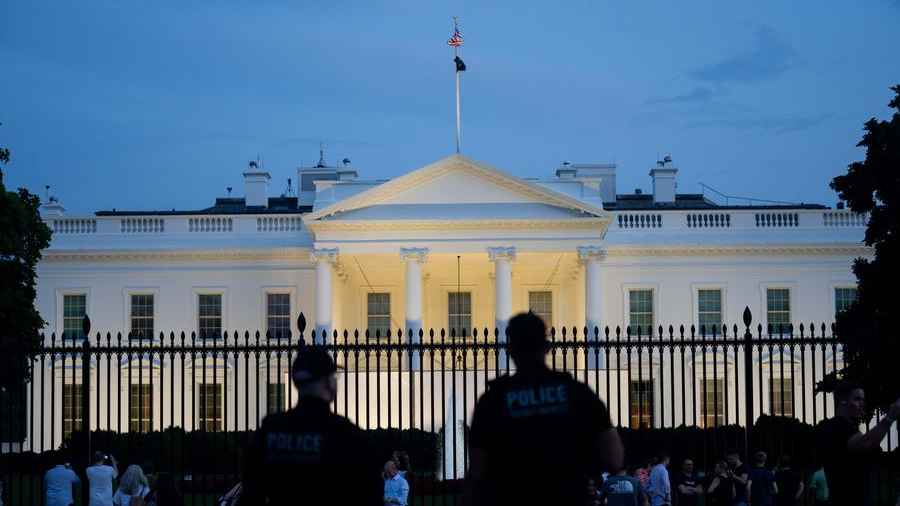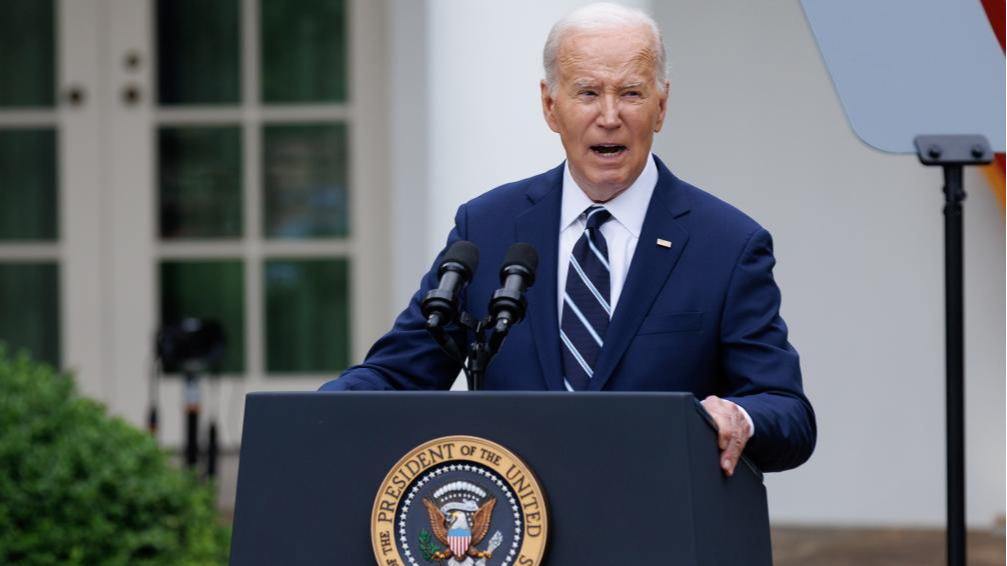
The White House in Washington, D.C., the United States, May 22, 2024. [Photo/Xinhua]
By John Gong
The United States is turning into a tariff nation, whether it be a Democrat or a Republican in the White House. The former U.S. President Donald Trump started a trade war with China in 2018 based on a Section 301 investigation initiated by the then U.S. Trade Representative (USTR) Robert Lighthizer. He imposed tariffs on thousands of Chinese products valued at approximately $380 billion before an agreement was eventually worked out with Beijing.
Back in May this year, U.S. President Joe Biden directed USTR Katherine Tai to increase tariffs across what are called strategic sectors, including steel and aluminum, semiconductors, electric vehicles, batteries, critical minerals, solar cells, ship-to-shore cranes and medical products. Tai then used the pretext of the Lighthizer's Section 301 final review to announce increased tariffs that cover products in 14 sectors with an estimated annual trade value of around $18 billion.
A few months later, Tai finalized the tariffs that CNN reported affecting $15 billion worth of Chinese exports. The tariffs started to take effect on September 27, 2024.
Based on U.S.'s zero-sum mentality of decoupling from China, it's highly possible that the list of "strategic industries," which Biden essentially wants to be protected from foreign competition, will keep expanding down the road. These are industries that America wants to have a stake in but is afraid of losing out to in competition from China.
For example, this round of tariffs includes electric vehicles (EV) and related batteries. According to data from China's General Administration of Customs, despite the fact that China exported just over 10,000 EVs to the United States in 2023, accounting for less than 1 percent of its total export volume, the Biden administration is still fighting against them tooth and nail.
Biden's protectionist approach extends beyond high-tech products, as demonstrated by this latest round of tariffs. I had thought that only Trump had a particular focus on steel and aluminum, as these were the first products he used to initiate trade disputes not just with China but with the entire world. However, it turns out Biden also targets steel and aluminum, although his focus is mainly on China.

U.S. President Joe Biden is pictured during an event in Washington, D.C., the United States, May 14, 2024. [Photo/Xinhua]
Low-tech products like needles and syringes are also targets in Tai's list. How can it be possible that these basic medical things are "strategic"? Maybe needles and syringes indeed concern national security when America fights its next war.
It's worth recalling that at the beginning of the COVID-19 pandemic, the United States scrambled to secure more masks. Despite China's efforts to export additional masks to the U.S. at the time, the issue was quickly framed as a matter of national security. The concept of supply chain resilience initially emerged with masks, and today, it has become a "strategic" concern.
These examples show that Washington's appetite for protectionism sees no boundaries, and in the future, we will see more of these so-called strategic products subject to high tariffs.
The pessimism over the future of Sino-U.S. trade seems to loom large. Although China's exports rose by 8.7 percent year-on-year, challenging times lie ahead. Relying too heavily on exports to the U.S. may not be sustainable in the long term. It would be wise to explore other markets to offset any potential decline.
The possibility of a downturn in China's exports to the U.S. is real. If Biden is continuing Trump's protectionist policies, what happens if Trump himself returns to the White House? Currently, it seems that there is a significant chance of his return. Polls show he is leading in Georgia and running neck-and-neck with Kamala Harris in Pennsylvania, two decisive swing states that could decide the election. Trump has already stated that his intention is to impose a 60 percent tariff on all Chinese imports and I take his words seriously.
John Gong, a special commentator for CGTN, is a professor at the University of International Business and Economics (UIIBE).

 中文
中文



